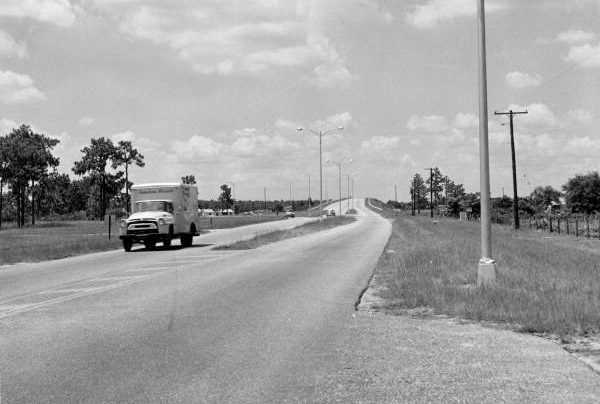Voter Fraud? If they're not catching the easy stuff, what else are they “missing”?
Are some of
Florida’s Supervisors of Elections skirting the law? Supervisors
are tasked with maintaining an accurate voter roll. One of the
requirements on the Supervisors is to ensure that voters provide a
legal residence address. Yet a December 2013 analysis shows more than
3,000 voter registrations statewide listing their residence address
at a UPS store, potentially illegally.
Florida Law is clear and, with minor
exception, requires that voter registrations listing other than an
address of legal residence should not be accepted, because they are
“ineligible” (F.S.
98.045 (1)(h)). This is considered so important, that it is a
felony to willfully submit any false voter registration information
(F.S.104.011(2)).
 |
| Florida Statute F.S. 98.045 (click to enlarge) |
Accordingly, if these “ineligible”
registrations are found to exist, Florida statutes also provide for
their prompt correction or removal (F.S.
98.075(6) & (7)).
This correction or removal process is
supposed to be enabled by Florida Law mandating that each Supervisor
maintain a list of valid residential street addresses. This list is
explicitly for the “purposes of verifying the legal addresses of
voters residing in the supervisor’s county”, (F.S.
98.015(12)).
Yet, further review of this mandated
list reveals that of the 3,000 UPS store registrations, more than
- 1,200 match addresses already known as commercial that were ignored,
- 500 match addresses erroneously marked as residential,
- and 1,100 have no match at all.
Unbelievably, even though our
Supervisors are required to submit to the State their updates for
their valid residential street address lists on a monthly basis, B &
C above could be fixed by the trivial repair or addition of around
120 records.
This mandated list of valid residential
street addresses, combined with the simplest of today’s computers,
should enable every Supervisor to easily and routinely identify these
“ineligible” registrations at the touch of a button. But, it
seems actually finding that button is for too many of our Supervisors
a step too far.
Now an optimist might think perhaps all
these UPS store registrations occurred only recently, and we just
need to allow enough time for the Supervisors to do their job. But
that optimism would be naive. Because more than 2,300 of the more
than 3,000 recently discovered UPS store registrations had the exact
same UPS store listed as their residence at least 15 months prior.
Think about that. As we approached our
2012 General Election, Supervisors across our State, for the lack of
120 records and a button press, allowed at least 2,300 likely
“ineligible”, potentially law-breaking registrations to remain on
the rolls, ready to vote, potentially in the wrong precincts and
races.
And vote they did. Approximately 800 of
those 2,300 likely “ineligible” registrations voted in our 2012
General Election.
Even more condemning, since Federal
Elections occur in even years, the Supervisors are required by law to
perform their primary “list maintenance” during the odd years.
Yet these 3,000 UPS store registrations were identified in December
of 2013 as the Supervisors’ odd year voter roll efforts came to a
close. So it’s pretty clear too many of our Supervisors aren’t
nearly as effective in their jobs as one might hope.
On a brighter side, of the 67 counties
in Florida, 38 were clean. And of the other 29 counties with UPS
store registrations, 19 have promptly responded with “Thank-you”,
and/or indicate they are following the law and promptly working on
the issue. Another 7 counties required phone calls before responding
with claims they were making progress.
But even though the Supervisors by law
must “Notify the registered voter of his or her potential
ineligibility by mail within 7 days after receipt of notice or
information” (F.S.
98.075(7)), the remaining 3 counties after more than a month have
either not responded at all to multiple requests, or are have only
responded weakly. And these three offenders are some of Florida’s
most populated counties: Broward, Orange & Hillsborough.
Broward county receives the “here’s
your sign” award with fully 40% of the 3,000 potentially ineligible
records, and simply responding they’re in process.
Orange County indicates, without
explanation, they have sent zero letters to their 116 registrations.
And even though every one of their 117
registrations were from addresses already listed as commercial, and
83 of those have been that way for at least 2 full years,
Hillsborough’s response via their County Attorney was to charge $58
for a Public Records Request to determine that zero letters had been
sent out.
The Florida Division of Elections is
aware of these findings and, under Governor Rick Scott, has shown an
interest in following-up on and ensuring our Supervisors’
compliance with the law. But to ensure free and fair elections it
clearly is the citizens who must demand all of our Supervisors go
well beyond the bare minimum passiveness required by law.
Because all this nonsense leaves one to
wonder: If some of our Supervisors lack sufficient skills or decency
to catch the easy stuff, what else are they “missing”?
Gregg Prentice
Hat tip: This article was previously cross-posted at drrichswier and former Congressman Allen West responded with a post on his website here.












